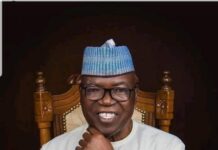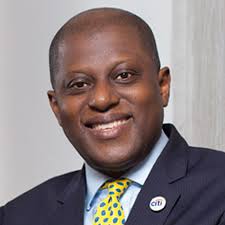
The military seized power in Burkina Faso on Monday, ousting the country’s democratically elected President, Roch Marc Christian Kaboré. I was in a conference on security in the Sahel last November and already at that time, the conversation was that the military had decided to seize power in the country and the only question was when not if they would. The main issue was the government’s failure to stem jihadist attacks that have destabilized broad swathes of Burkina Faso, displaced 1.4 million people, and caused 2,000 deaths last year alone. The general feeling in the country was that the time has come to try an alternative government. The coup leader and President is 41-year old Lt-Col Paul-Henri Damiba, an infantry officer trained in France and the United States. There are disturbing reports that just last week, he tried to convince President Kabore to hire the Russian Wagner paramilitary group and failed. What is known is that one of the first persons to congratulate Damiba is Putin’s friend and reputed owner of the Wagner Group, Evguini Priggojine who spoke of: “a new era of decolonization in Africa”. Signalling, I suspect, the substitution of the Russian for the French imperial power.
The Burkinabe coup was therefore similar to the one in Egypt in 2013 when the coup was announced on national television months before it happened. The politics of Africa has been changing dramatically in recent years propelled by the return of the military to power. There had been an abortive coup in Burkina Faso in 2015 that was foiled. This time, there was no impediment. In the new dispensation, there was a military coup in Zimbabwe in 2017. This was followed by the 2019 military coup in Sudan and the 2020 military coup in Mali. The military were active in assisting power takeovers in Tunisia and Algeria in 2020. The same year, a military coup was aborted in Niger Republic. The military strongman in Mali was not happy with the limited powers he was constrained to take in 2020 and did another coup in 2021 giving himself full powers. The same thing happened in Sudan in 2021 as the military staged another coup to take on full powers and break the bonds with their civilian collaborators. In Chad, the 2021 coup was to keep power in the family following the killing of strongman Idris Deby. In Burkina Faso, Mali and Guinea, civilians have demonstrated in favour of military rule and have been ready to collaborate with them. Clearly, there is a new generation in Africa that has no memories of the terrible impact of military rule and in their naivety think military rule can be a political solution.
Post-colonial Africa has seen over 200 coup attempts, with roughly half seeing the leader successfully removed. The democratic transition of 1989 to 1994 led to a dramatic decline of unconstitutional seizure of state power. The past two years has however witnessed a new wave of coup d’état on the continent. The current trend is however different from that of the 1970s and 1980s. Today, we are witnessing the grand entry of politics by the gun. In the Sahel, as well as other parts of Africa, numerous non-military groups have acquired guns and are engaged in armed struggle for power or sometimes just armed banditry. Generalised insecurity has become the other of the day and in many of our countries – Nigeria, Niger, Mali, Burkina Faso, Mozambique, Sudan, Somalia, Kenya, Central African Republic, Democratic Republic of the Congo and so on, the military has completely failed to contain the armed combatants and reduce insecurity.
This situation has created two narratives in an emerging blame game. The military have been complaining in loud whispers that the corrupt democratic administrations have not been supplying them adequate weaponry to deal with insurgents, jihadists and armed bandits. The response is that deep corruption has also penetrated the military and they often misappropriate the funds given to them to execute the war. A war economy has developed in which officers are massively enriching themselves from the war effort and thereby sabotaging it. The winner, as it were, is corruption.
The more profound narrative is that the African situation today is characterized by three types of coup d’état. The first is the constitutional coup in which serving presidents recklessly tear the normative framework they had themselves developed and engage in tenure elongation beyond constitutional limits thereby destroying the legitimacy of the political system. The second coup is engaging in massive electoral fraud to change electoral outcomes. There have been at least thirteen African countries, where the leaders have used various legal devices and political manoeuvres to extend their tenures beyond two terms since 2012.
Often, it is the experience of these forms of coup d’état that creates the conditions for the third type which is the military coup d’état. The result is that Africa’s robust normative frameworks for deterring unconstitutional changes of government and for advancing democracy, election and governance have been considerably weakened over time. The norms codified in Article 30 of the African Union Constitutive Act, 2002; and the African Charter on Democracy, Elections and Governance, 2012 have gradually lost their meaning. It is for this reason that the condemnation of military coups by the African Union or by ECOWAS have very little resonance because people always ask what these institutions did when democratically elected leaders were messing up the constitution and/or the electoral system. Democratic culture has therefore been weakened considerably through anti-democratic practices by ruling parties. Repeatedly, ECOWAS, the African Union, and the United Nations Security Council have strongly condemned coups and called on the military to reinstate the deposed leaders and restore constitutional rule with no effect. Even the imposition of sanctions has had very little effect on the emerging juntas.
The time has come for Africans to reopen the debate on the best pathways of deepening democracy in our countries. The contemporary African must learn to read the tea leaves. Apparent democrats win elections with the promise of democratic consolidation and when they get power they work on dismantling the democratic system. Meanwhile, their colleagues in the African Union and Regional Organisations watch without comment and only show concern when the military steps in. We know from our past experience that the military cannot be the solution to our democratic and developmental needs. What we need to reinforce in our political systems is early detection of democratic derailment so we can put the system back on course.



